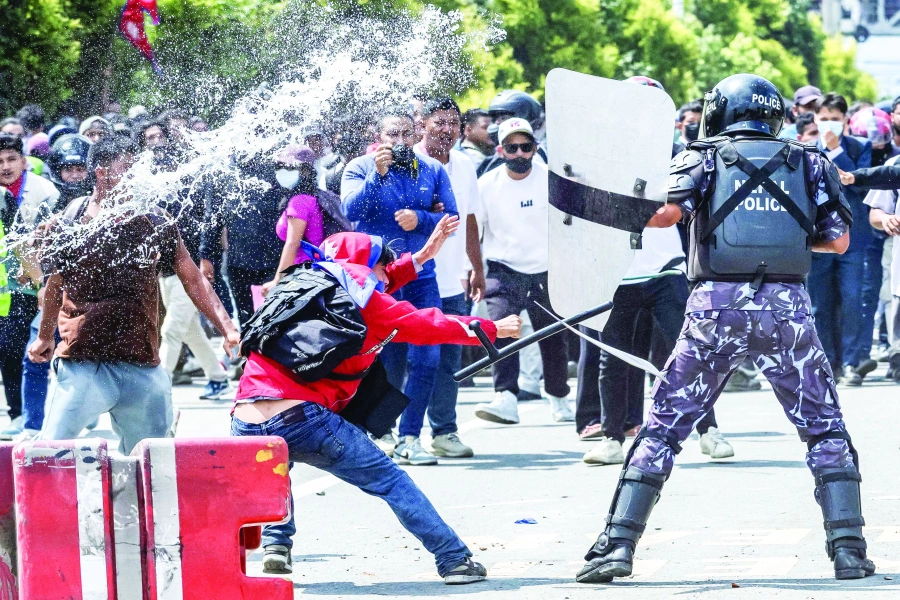One harsh reality about the police is that they are probably never going to achieve a hundred percent success when dealing with all the different type of transgressions in the society
The rules and regulations in the society are only as effective as the institutions enforcing them. You have the legislation to create policies, executive to enable them in practice and the judiciary to restore balance if someone decides to tamper with it. However, in order to ensure that the transgressions don’t go unchecked, it is the police that is always called into action.
In the early years, people responsible for maintaining law and order in foreign societies were mostly individual citizens themselves. Those who served in the positions of constables used to be volunteers. But after the late 1700s, owing to growth in population which could be felt in civil unrest and protests, it was clear that a more professional and effective law enforcement would be needed. Over the course of time, as societies gravitate towards a more liberal and democratic framework—one where protests are inevitable and, to some extent, essential—the role of police as traditional enforcers of the law will be brought into question. In an era where people are continually looking forward to having their representation, freedom and rights adjusted into the existing books of legislation, how does an institution formed to preserve the sanctity of that very book go about ensuring peace during an inevitable and, quite possibly, turbulent transition?
Dancing with Deuba

The birth of modern-day policing is usually traced back to England and Sir Robert Peel, who many criminologists consider as the father of modern policing. In 1829, Peel, who was also a minister of parliament, established the Metropolitan Police Services in London. At first the idea of paid enforcers was something that was tough to sell to the public. The public viewed the police as another branch of the military, which for them seemed like an occupying force that would hinder their freedom. In order to calm the people, Peel came up with a set of principles that the police would adhere to. The purpose of the police, as per the Peelian principles, was to “prevent crime and to maintain order” and also to achieve “voluntary compliance” with the law in the community. From the very start, it was important that the police have the trust of the public—the very people they are sworn in to protect. But this was in a different time, in a different country and under different circumstances.
Policing in Nepal
While drawing a parallel between a fledgling democracy like Nepal and the original initiators of this type of system, is a bit of a stretch, there are a few observations that, at the least, raise some important questions about one aspect of modern day policing in Nepal—the enforcement on behalf of the state. Discounting the rudimentary existence of this institution in our country, the police headquarters was established in Kathmandu in 1952 with Toran Shamsher JB Rana appointed as the first Inspector General of Police. Since this was before the democratic movement of 1990 the main function of the police, and this is quite frankly acknowledged in the Nepal Police website, was mainly to safeguard the interests of the ruling system. While this would include dealing with transgressions in the society, the implied meaning of ‘to protect and serve’, because it was under an authoritative framework, wouldn’t remotely take the same meaning as it would in a democracy. Stanley Vanagunas quite interestingly highlights the predicament facing the police and their attempt to maintain law and order in a democratic society.
He states that not every lawful act is orderly, and not every orderly act is lawful. For a country like Nepal which is still en route to a true and representative democracy, there are more issues in the rule book that need to be adjusted, than those that need to be preserved. In a heterogeneous society like Nepal where only a concentrated few make the majority, unless the legislative developments become timely and inclusive, the most appealing way to advance the democratic values, after the right to protest, would involve an act of transgression. Under such circumstances, the moral predicament of choosing between the role that one is supposed to carry out as an enforcer on behalf of the state, and the role of understanding the moral rationale behind a transgression which ultimately looks to promote democratic values in the society, makes the job of a police officer extremely challenging. The motto of Nepal Police revolves around the concepts of honesty, service and security. No matter what problem the society faces, the police are among the first ones that people contact. The nature of their work might, at times, make them unpopular but that is something that majority of officers gladly accept. One harsh reality surrounding the police is that they are probably never going to achieve a hundred percent success rate when dealing with all the different type of transgressions in the society. Another reality that’s even harsher is that even if they do succeed in controlling every transgression in the present, chances are, that over the course of time, when they themselves become part of the past, history quite possibly will see them, not as watchful protectors but as oppressors of the very society that they were sworn in to protect.
Police job
Nepali democracy is not a finished product. It is a building still surrounded by scaffolds. You have people fighting disparity, seeking representation and demanding fair trial. All of these issues will only get more turbulent as the government fails to address them in legislative writing. But until then, Police will be in the front lines, sacrificing their personal identity to do their job as they fend people off from what might be an inevitable and righteous outcome. In many ways, the practices of the Police mirror the aspirations and intentions of incumbent governments. Mind you, the government has its own set of problems. If it allows for too much flexibility to give an inch of space, there are people out there looking to take a yard. The only difference between the predicament of these two bodies is that the government has an option to resort to alternative measures enabled by democratic frameworks like dialogues, legislation amendments etc. The police do not. So, say for instance, when the government orders them to bring in an old man staging a hunger strike for an honest cause, they are going to have to adhere to that command no matter how they feel about the issue personally. And when the person does not comply with the order, the police, as they do with any other legal transgressions, will likely resort to the use of force—a tactic that, although necessary at times, simply does not fit well with the democratic values of the society. Protests, and even riots, are an unavoidable part of a democratic framework. Which means that a clash between the Police and the public becomes inevitable. And while there is no solution to avoid this confrontation, knowing the dilemma facing either side helps prevent a feeling of personal ill-will in a war that should be limited to ideologies.
saranspandey@outlook.com






































